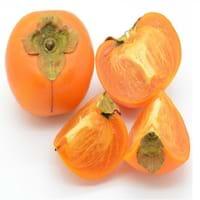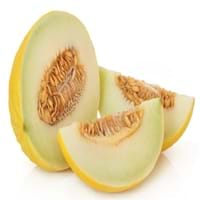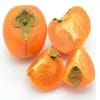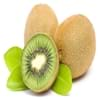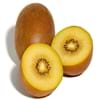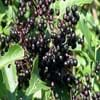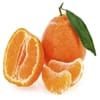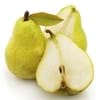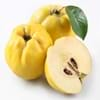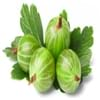Health Benefits
Cancer prevention, Heart care, Heat stroke treatment, Improves eye vision, Weight loss properties
Body hydration, Cancer prevention, Gout treatment, Heart care, Treatment of skin Diseases
General Benefits
Anti-inflammatory properties, Boosts immune system, Cures cough, Digestive aid, Fights against infections, Improves blood circulation
Body hydration, Controls blood pressure, Digestive aid, Eye care, Helps in weight loss, Improves eye vision, Maintains healthy cholesterol level, Strengthens bones
Skin Benefits
Anti-aging benefits, Brightens and lightens complexion, Reduces wrinkles
Anti-aging benefits, Brightens and lightens complexion, Hydrates skin, Reduces wrinkles, Treatment of dark spots
Hair Benefits
Promotes longer and healthier hair, Protects hair
Prevents hair loss, Promotes longer and healthier hair, Protects hair
Allergy Symptoms
Abdominal pains, Anaphylaxis, Inflammation
Abdominal cramps, Breathing difficulty, Coughing, Diarrhea, Hives, Hoarseness, Itching in eyes, Itching of mouth, Itching sensation in throat, Nasal congestion, Nausea, Skin rash, Wheezing
Side Effects
Diarrhoea, Might affect blood pressure level
Allergic reaction
Best Time to Eat
Along with meal, As a snack in the late afternoon, Don't consume at night and before bed, Morning time (before lunch)
As a snack in the late afternoon, Don't consume at night and before bed, Eat the fresh ones, avoid mixing with any other foods, don't eat after meal., Morning time (before lunch)
Vitamin B5 (Pantothenic Acid)
Not Available
Vitamin C (Ascorbic Acid)
Vitamin K (Phyllochinone)
Phytosterol
Not Available
Calories in Fresh Fruit with Peel
Not Available
Calories in Fresh Fruit without Peel
Not Available
Calories in Frozen Form
Not Available
Calories in Canned Form
Not Available
Not Available
Type
Berry, Tree fruit
Melon
Season
Autumn, Winter
All seasons
Varieties
Fuyu, Jiro, Gosho, Suruga, Hiratanenashi, Hachiya, Aizumishirazu, Yotsumizo, Yokono, Costata, Ormond and Tamopan
Green Flesh, Yellow Rind and Orange Flesh
Color
Orange, Red, Yellow
Green, Yellow
Inside Color
Orange
Light Green
Origin
Burma, China, India, Japan
France
Grows on
Trees
Not Available
Soil Type
Sandy loam, Well-drained
Sandy loam, Well-drained
Climatic Conditions
Can tolerate wide range of climates
Warm
Facts about
- Unripe persimmons contain lots of tannin which is used to brew sake & to preserve wood in Japan.
- A small non-edible fruit of persimmon tree is crushed with water, the solution is painted on paper & used to repel mosquitoes.
- The average weight of honeydew melon is 6 pounds.
- 90% of a honeydew is water.
- In middle east countries, dried and roasted honeydew seeds are consumed as snacks.
- Honeydew melons can be 15-22 mm long.
Spirits
Not Available
Yes
Cocktails
Not Available
Yes
Other Countries
Azerbaijan, Brazil, Israel, Italy, Japan, Pakistan
Brazil, Egypt, India, Iran, Mexico, Morocco, Spain, Turkey, United States of America
Top Importer
United States of America
Not Available
Top Exporter
Japan
Not Available
Botanical Name
Diospyros kaki
Cucumis melo
Synonym
Not Available
Not Available
Subkingdom
Tracheobionta
Tracheobionta
Division
Magnoliophyta
Magnoliophyta
Class
Magnoliopsida
Magnoliopsida
Subclass
Dillenhidae
Dillenhidae
Order
Ericales
Cucurbitales
Family
Ebenaceae
Cucurbitaceae
Generic Group
Not Available
Gourd
Compare Japanese Persimmon and Honeydew
It is important compare Japanese Persimmon and Honeydew as both the fruits have a different nutritional value. Their comparison can be done on the basis of their vitamin and mineral content, calories, benefits as well as characteristics, making it easier for us to choose the best fruit for our diet. Their general health benefits are as follows:
Japanese Persimmon Benefits: anti-inflammatory properties, boosts immune system, cures cough, digestive aid, fights against infections and improves blood circulation.
Honeydew Benefits: body hydration, controls blood pressure, digestive aid, eye care, helps in weight loss, improves eye vision, maintains healthy cholesterol level and strengthens bones.
Fruits are also used as a remedy for various hair problems. The hair benefits of Japanese Persimmon are: promotes longer and healthier hair and protects hair and hair benefits of Honeydew are: prevents hair loss, promotes longer and healthier hair and protects hair. Some fruits are known to cause allergic reactions. The allergy symptoms of first fruit are: abdominal pains, anaphylaxis and inflammation and the symptoms of second fruit are: abdominal cramps, breathing difficulty, coughing, diarrhea, hives, hoarseness, itching in eyes, itching of mouth, itching sensation in throat, nasal congestion, nausea, skin rash and wheezing. Get sorted Japanese Persimmon vs Honeydew comparison with the help of fruit comparison tool by fruitvs.com.
